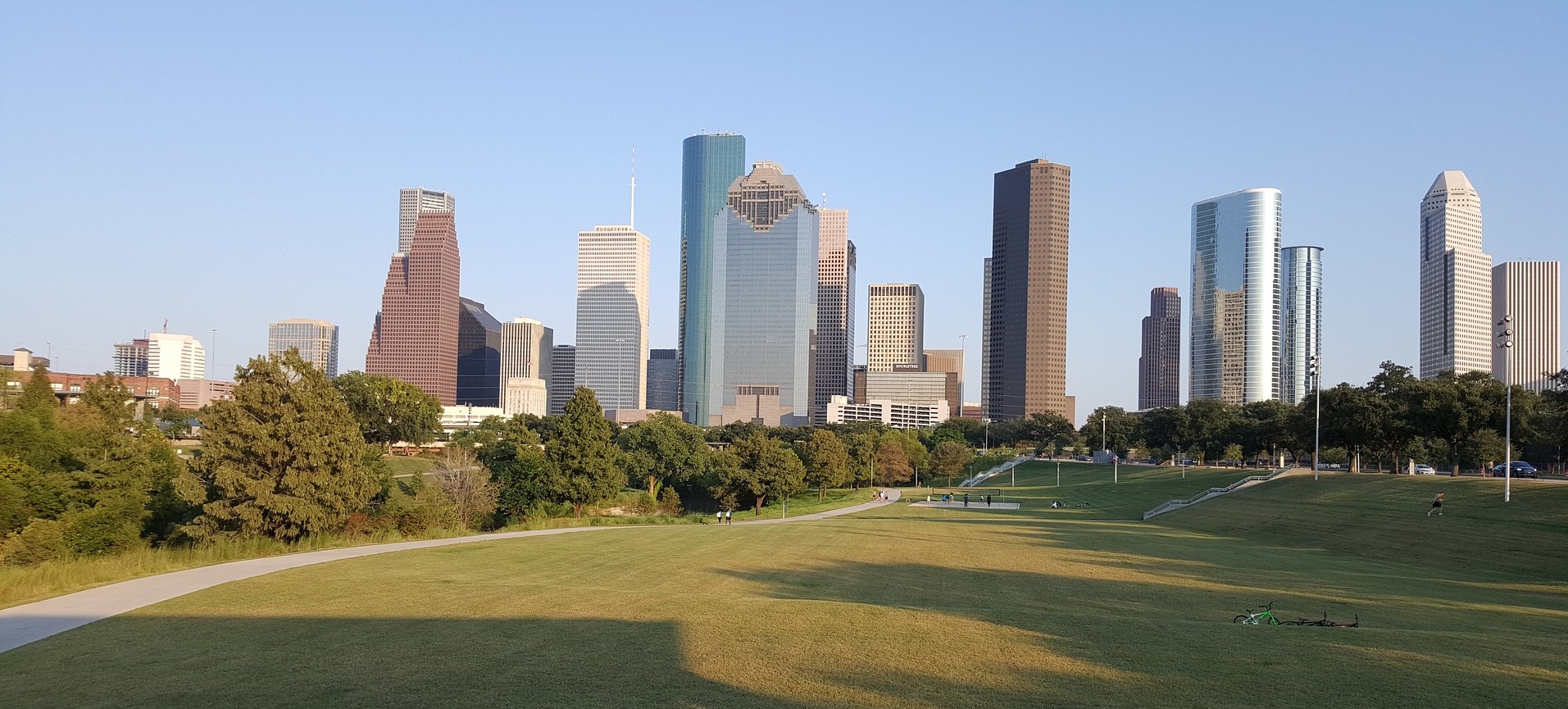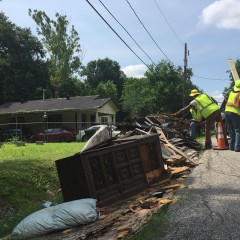Over the past several months, over 5,500 Harris County residents have responded to surveys on a variety of topics as part of the Kinder Institute’s Greater Houston Community Panel. Ahead of the recent election, Houston residents in particular were asked to weigh in on their concerns and perceptions of the city, as well as their willingness to help fund local initiatives through additional fees and tax dollars.
For example, in one survey, a majority (51%) said they would be willing to contribute as much as $60 more a year toward parks and greenspace improvements. As it stands now, Houston spends about $32 a year per resident on its primary public parks agency — the Houston Parks and Recreation Department — which is the lowest level of public funding among the nation’s biggest cities.
In another survey, 80% supported paying more in drainage fees to help improve our roadways and flood control, and 60% would support a fee of at least $10 a month toward better garbage collection.
Majorities of Houstonians also support increased spending on their police and fire departments, which is no surprise given the heightened concerns we heard around crime and public safety in both the Kinder Houston Area Survey and a follow-up survey for the election season.
In the process of asking questions about funding, our survey informed residents about the spending levels in Houston’s peer Texas cities: Dallas, San Antonio and Austin. It seems to be the case that when Houstonians learn how much other cities are spending and what other cities’ residents are paying for parks, police and other services, Houstonians want their city to be on par, which usually means spending more.
Unfortunately, as previous Kinder reports have demonstrated, Houston tends to fund city services far below the level of Dallas and San Antonio, notably its parks system, and it is the largest city in the country without a dedicated garbage fee. As a result, Houston provides garbage collection to about 400,000 households at a cost of about $18 a month — all from property taxes — according to data reported by its Solid Waste Management Department. Austin and Dallas spend nearly twice as much, assisted by monthly fees of $30-$40 per household.
Houston also stands apart with its self-imposed property tax revenue cap, which has prevented the city from collecting over $1.9 billion since 2015, Mayor Sylvester Turner has said. Complicating matters is that when voters approved this property tax cap in 2004, they also approved a charter amendment limiting taxes as well as water and sewer revenues — a measure that has not been enforced and is a matter of some dispute. In April, the Texas Supreme Court asked a Harris County court to determine a path forward in reconciling these two revenue caps. In addition, a state law passed in 2019 established a statewide property tax cap, which would apply to the city even if the city’s own limits were repealed.
While the voters of 2004 may have broadly supported limiting the city’s ability to raise revenues, our survey found a majority of Houstonians are open to “changing the rules” to allow more resources to flow toward essential services — about 25% fully supported making changes, while about 35% were “maybe” supportive.
However, even without changing these rules, it is possible to raise taxes above the cap — with voter approval — through a ballot item asking for a tax increase above the limit or by asking for a “carve out” as the city did in 2007 for additional police funding. Our survey results could signal that Houston taxpayers are open to an increase if the right “ask” is made to support a critical need. What our survey did not ask was which fees residents would prefer over others, but we did hear clearly that they want the next mayor to focus on crime, infrastructure and affordable housing.
Whether it’s a tax or a fee, being willing to pay more seems somewhat at odds with the fact that Houston households are increasingly cost-burdened and incomes are not rising to keep pace.
Given that reality, this willingness to pay may be a reflection of a general frustration with local services. It’s also a signal of the higher expectations residents have of the nation’s fourth-largest city. On the one hand, given the resource constraints Houston has operated under, we may have been getting one of the most “cost-effective” local governments one could hope for. On the other, we have been left with a situation in which many residents are deeply frustrated, feel unsafe and insecure, are experiencing firsthand the consequences of underfunded city services and are seeing roads, drains and other basic infrastructure deteriorate around them.
Raising taxes and revenues is not ideal — not only does it erode political capital, it also threatens to result in disparities in how those increases are assessed on households. Should a household earning $150,000 a year be asked to contribute the same amount as a household earning $15,000 a year? That is why we also asked residents what they thought about how the burden of these potential fees and taxes should be distributed. A majority of Houstonians believe that a person’s ability to pay should be a factor in any plan to raise revenues, such as having a “sliding scale” fee structure.
Houstonians seem willing to pay their fair share to improve the functioning of their local government, but no one should read these results as an endorsement of a blank check to the city or a mandate to implement a host of fees and tax increases. City leaders owe it to residents to make clear, data-informed decisions about when and how any increases should be executed.
The city’s next administration will almost certainly have to raise revenues. A recent Baker Institute report points out — assuming no other cost increases or cuts — the city will need about $160 million in additional funds to cover its existing budget. Even more funds will be needed if city leaders want to match the levels of investment that residents are asking for and that our peer cities are already spending on their police, parks, waste management and other services.
While it looks for new resources, the city must also continue to root out inefficiencies, collaborate more with Harris County, pursue more public-private partnerships, equitably allocate dollars from tax increment reinvestment zones and secure more state and federal dollars. We cannot wait for disaster-recovery funds to provide the city the resources it needs to tackle its biggest problems, such as public safety, housing and drainage.
While Houstonians seem willing to open their pocketbooks and contribute their part to investing in Houston’s future, this should not be taken for granted. It can be best honored by elected officials using data to drive decisions, making sure residents are contributing their fair share, and that all funds raised are being stewarded carefully and effectively.




